Fox’s X-Men Movies Are Better Than Marvel Fans Will Admit
Fox’s X-Men franchise isn’t as highly-regarded as the Marvel Cinematic Universe, but it is better overall than many fans will admit it. Dark Phoenix is essentially the swansong of the long-running series, but with the mutants soon to join the MCU thanks to Disney’s purchase of Fox, it’s worth noting what a debt the MCU owes to the X-Men. After all, it was the mutants who had paved the way for the MCU and the modern day superhero movie golden age.
Bryan Singer’s X-Men
After the 1990s were dominated by Batman, in 2000, the Marvel finally got into the blockbuster movie game with Bryan Singer’s X-Men, which introduced the concept of mutants to the moviegoers and made a star out of Hugh Jackman, who would go on to play Wolverine for 17 years. Bryan Singer’s 2003 sequel, X2: X-Men United, is still heralded as one of the best superhero movies everytime, ever. After that, however, the quality of the X-Men franchise took a nosedive; the fans still argue which worse – Brett Ratner’s X-Men: The Last Stand or Gavin Hood’s X-Men Origins: Wolverine.
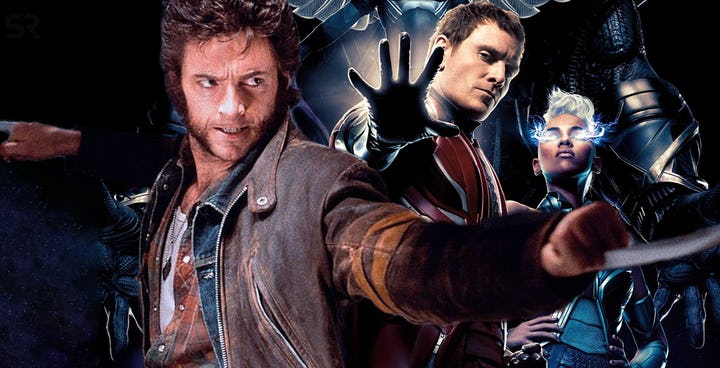
Thankfully, Matthew Vaughn’s 2011 reboot the X-Men: First Class had recast the mutants with younger actors and had re-energized the franchise, while James Mangold resuscitated the spinoffs with The Wolverine. Singer returned to helm the crowdpleaser X-Men: Days of Future Past, which had utilized both the original and rebooted X-Men casts, but Singer had stumbled with his underwhelming follow-up the X-Men: Apocalypse. Now, the saga closes out with Simon Kinberg’s the Dark Phoenix and, with fans looking forward to the mutants taking their place in the MCU, the final Fox X-Men film feels like a lame duck.
Also Read: John Wick vs. Ethan Hunt:Who Would Win In A Fight?
X-Men has a strong legacy
Unlike the MCU, which boasts a string of billion-dollar blockbusters, the X-Men has a strange legacy wherein its failures tend to overshadow its successes. But whenever an X-Men movie does hit the mark, it’s usually spectacular: along with X2 and Days of Future Past, the spinoffs of Deadpool, Deadpool 2, and Logan were not only blockbusters but they broke new grounds as R-rated superhero movies. Looking back on the last two decades of the X-Men films, here’s how they paved the way for the MCU, the mistakes they made and had learned from along the way, and how the mutant franchise changed the superhero movie genre for the better:
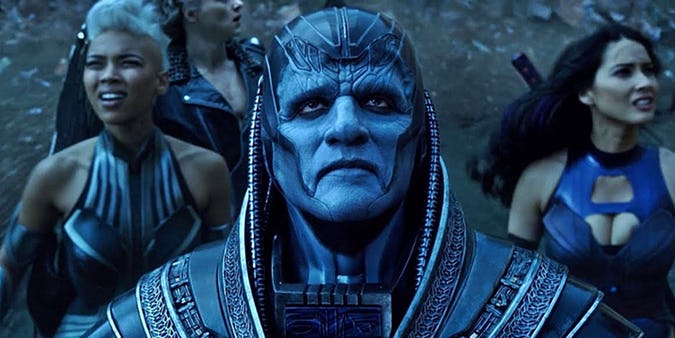
It was the X-Men franchise that brought the Marvel formula to the on screen movies. Jean Grey’s death in X2: X-Men United launched years of frenzied fan speculation about whether the next film would adapt The Dark Phoenix Saga. Post-credits scenes are an MCU staple, but X-Men: The Last Stand did it first when they had teased that Professor X could come back from the dead and that Magneto’s powers would return back. Logan suddenly meeting a resurrected Xavier and Magneto in The Wolverine‘s post-credits scene set up the Days of Future Past. These moments fueled excitement for the next installments of the X-Men franchise, just as the MCU would later tease Thanos in their buildup to the Avengers: Infinity War and the Avengers: Endgame. Marvel President Kevin Feige got his start as an associate producer on the X-Men, and the lessons he learned had benefited the MCU. The era of Stan Lee cameos also had began in X-Men.
Also Read: Marvel Reportedly Considering Bringing The Ultimates Into The MCU
One of the keys to Marvel Studios’ success is they placed emphasis on the flaws and inner turmoil of their characters, which makes Tony Stark, Steve Rogers, and even Thanos relatable and very loveable. But X-Men led the way in that regard; the mutants are troubled souls alienated from society because of the ‘curse’ of their powers. In fact, the X-Men boasts one of the most pivotal scenes in superhero movie history: when Rogue and Logan first meet as he drives his truck through the Canadian Winters. After warning him about what happens when she touches people, Rogue asked Logan if it hurts when his claws will pop out and he replied, “Every time”. This instantly communicated to the audience that having superpowers is sometimes tragic and that being “special” can also lead to a lot amount of pain, loss, and isolation.

The X-Men movies have consistently communicated its central theme that mutants are a persecuted race hated and feared by mere humans. Charles Xavier’s all time dream is that humans and mutants can co-exist, while Magneto feels mutants should assert their dominance over the world and the homo sapiens. That core conflict, which has evolved through different permutations, has sustained the entire saga but it has also allowed the audience to ask themselves who they would stand with and what their values are.
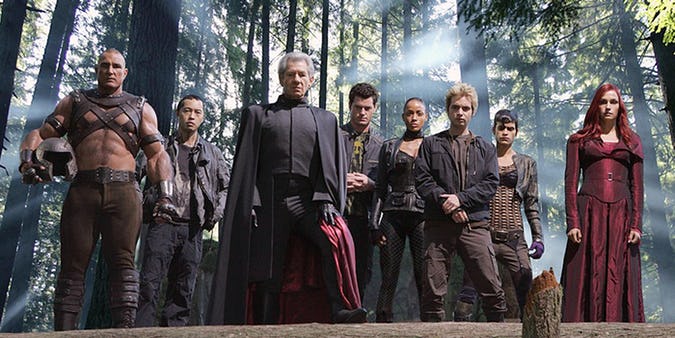
X Men Movies: A cut over the other superhero movies
However, X-Men movies have ranged from asking the biggest questions about the genocide of the entire mutant race, to deeply personal stories like at least trying to save Jean Grey from her darkest impulses being manifested by the Phoenix Forceor an older Logan trying to do one last good thing for his gravely ill mentor the Professor X and his ‘daughter’ Laura before he dies. All throughout the saga, mutants have been mistreated, enslaved, and weaponized as the X-Men movies hold up a mirror to abuses inflicted upon people in the real world. The X-Men still plays into the superhero genre’s the tropes of costumes, superpowers, and saving the world from villains, but beneath the action-packed conflicts are persistent themes, difficult questions, and no easy answers, which makes the X-Men movies a cut above other superhero flicks.
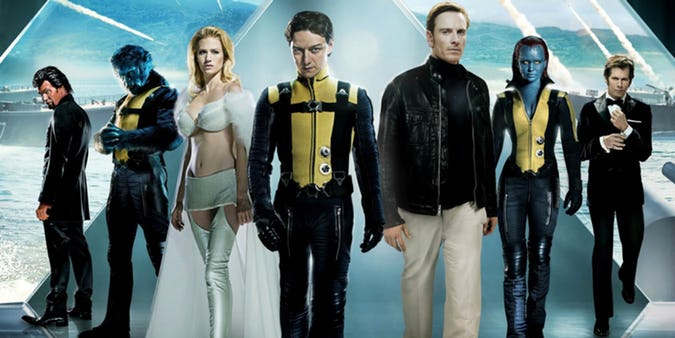
Today, fans thrill to see the Avengers assemble but the X-Men brought the very concept of the superhero team to the movies. Before X-Men, superhero movies were about a lone caped crusader defending one particular city and only Christopher Reeve’s Superman was truly a global superhero,all round the world. X-Men changed all of that with its very first scene depicting young Erik Lensherr’s trauma in the World War II Auschwitz. The movies’ scope continued to grow, taking the X-Men to San Francisco in The Last Stand, before the X-Men movies started playing with alternate history: Logan, who was born in the 19th century, fought in both the World Wars and Vietnam before taking on ninjas in Japan in the first two Wolverine spinoffs. The X-Men: First Class depicted the Cuban Missile Crisis, Days of Future Pastwent from Russia and China in the future to the 1973 Paris Peace Accords, and by X-Men: Apocalypse, the story jumped from Poland to Egypt while the nuclear missiles hovered over the entire world.
Also Read: ‘New Mutants’ Creators Reuniting For a New Story at Marvel
Deadpool:fourth wall breaking comedy
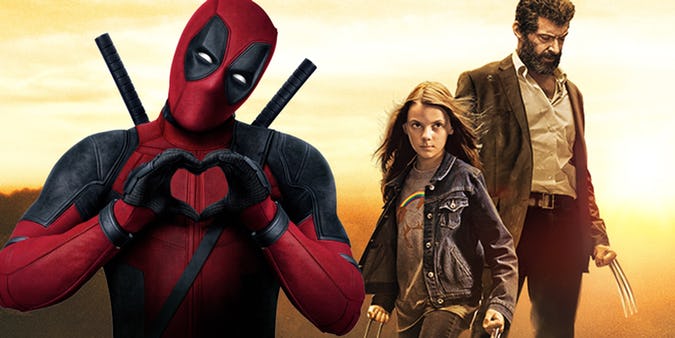
The X-Men movies also broke out of its own genre and began experimenting with the R-rated material. Thanks to Ryan Reynolds’ irreverent vision, the Deadpool movies became fourth-wall-breaking, raunchy comedies that still contained action, heart, and romance alive. James Mangold’s Logan was Oscar-nominated and inspired by classic Westerns like Shane, giving Hugh Jackman’s the Wolverine a poignant ending. Only in X-Men can fans thrill to see the eleven-year-old Laura Kinney (Dafne Keen) violently hack and slash her enemies with her sharp claws.
As for the mainline X-Men films, X-Men: First Class was a groovy 1960s international Cold War thriller that had predated Captain America: The Winter Soldier, Days of Future Past melded a Terminator-inspired post-apocalyptic time travel/sci-fi film with a 1970s period piece, and the X-Men: Apocalypse attempted to bring the sensibilities ofX-Men: The Animated Series to the live-action. Even Dark Phoenix is a risk; an outright copy of the X-Men: The Last Stand that aims to have more depth and varied dimension. Not to mention the brilliant Quicksilver superspeed sequences in Days of Future Past and X-Men: Apocalypse outshine everything the Avengers: Age of Ultron did with the same character. In spite of their flaws, the X-Men movies deserve kudos for their willingness to boldly take deadly chances instead of always sticking to convention and playing it safe.
Source: screenrant, YouTube




